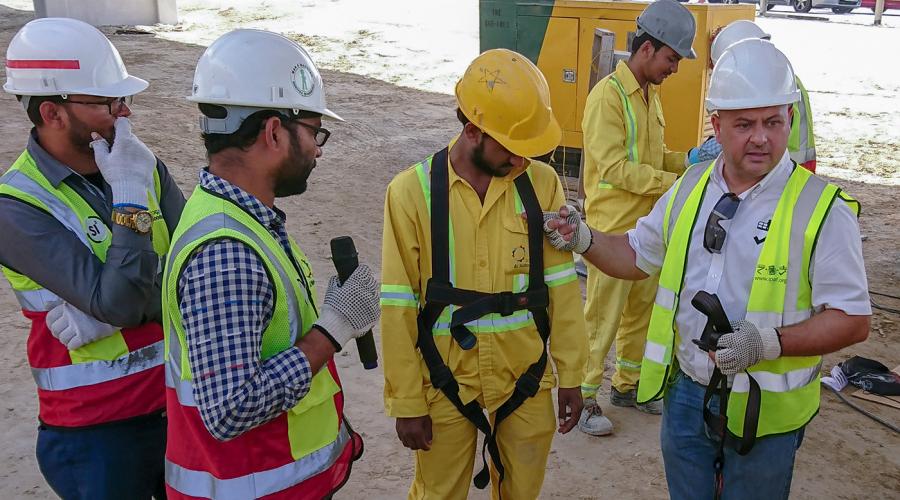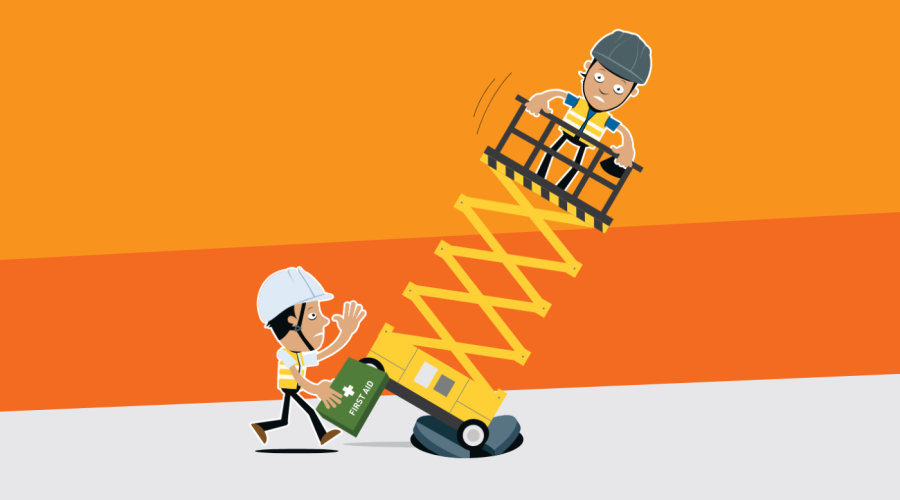OHSSAI backs IPAF call for better MEWP training in India

The OHSSAI has amplified calls from the International Powered Access Federation (IPAF) to increase take-up of comprehensive Mobile Elevating Work Platform (MEWP) operator training in India, to help eradicate unsafe practices such as using ground controls to elevate untrained personnel to carry out work at height.
IPAF analyses accidents involving mobile elevating work platform (MEWP) equipment worldwide to look for trends and learn from them. This research indicates that all too often the underlying cause of accidents is a manager choosing the wrong type of equipment or asking an operator who is not trained to carry out a badly planned job.
Writing in a forthcoming OHSSAI publication to coincide with the organisation’s 4th Annual HSE Excellence & Sustainability Awards ceremony on 12 July, Jason Woods, IPAF’s Middle East & India Representative and a trained IPAF instructor, says: “In India we see many MEWP operators using this type of equipment from ground controls with the tradesman lifted at height. This creates a safety issue as the MEWP operator should be in the platform to correctly and safely use the equipment.
“The simplest solution is for all managers and supervisors to undergo basic training on how to properly plan and organize the safe use of MEWPs. And the first thing that any manager or supervisor planning temporary work at height using MEWPs should do is to ensure operatives are correctly trained and familiarised on the machines they will use.
“There are many companies offering MEWP operator courses; some claim they can certify someone to use a MEWP in just a couple of hours. All of IPAF’s official Training Centres offer operator training leading to the Powered Access Licence (PAL) Card, a globally recognized certification with almost 1 million currently valid today.
“No matter where in the world an operator is trained by IPAF, the course is consistent and the Training Centre delivering the training is properly checked and audited to ensure it is to the same high standard regardless of where it is carried out.
“IPAF offers training in multiple languages to suit the local demand, including in Hindi. At minimum, the operator training lasts a full day, to ensure all the relevant points of theory, health & safety and the practical assessment are carried out correctly. On successful completion of the course, the training candidate is certified on a specific category of MEWP machine, and the training needs to be renewed every five years.
“No other training comes close in terms of such stringent requirements to ensure that the operator has the best possible introduction and basis for operating MEWPs safely. “Many IPAF Training Centres also offer a six-hour course called MEWPs for Managers; this doesn’t teach people how to use MEWPs, but how to plan and manage their use.
“IPAF can also offer vital supplementary training, including how to load and unload MEWPs from delivery vehicles safely, how to carry out a pre-delivery inspection, and how to choose, inspect and use a harness correctly.
“IPAF’s global safety message is all about using the correct machine for the job, planning thoroughly, carrying out risk assessments and rigorous equipment inspections and using trained operatives under proper supervision.
“There are many companies that claim they can certify operatives quickly and cheaply, sometimes taking just hours, to minimize employees’ time away from the job. However, this really isn’t credible and only runs the risk of serious accidents somewhere down the line, ultimately putting workers’ lives in jeopardy.
“When things inevitably do go wrong, the work site grinds to a halt while the accident is investigated, so any supposed time and cost savings are a false economy. This also demonstrates that ‘operator error’ is usually the manager or supervisor’s mistake.
“At IPAF we believe it is important for the manager or supervisor and all employees and sub-contractors to be professionally trained to carry out work at height using MEWPs. This means fewer stoppages and minimizes the risk of people being injured or killed. There really is no excuse for cutting corners where safety is concerned.”
To find your nearest IPAF training center visit www.ipaf.org/training; for a full list of all IPAF training courses, visit: www.ipaf.org/courses
